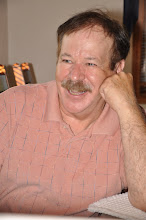 Fort Sumpter (I have chosen the original spelling over Fort Sumter, commonly used today) is a man made island that was built after the War of 1812; one of a series of forts built to protect the southern U.S. coastline. Seventy tons of granite were brought from New England to build the island, on a sandbar, at the mouth of the Cooper River in the Charleston harbor.
Fort Sumpter (I have chosen the original spelling over Fort Sumter, commonly used today) is a man made island that was built after the War of 1812; one of a series of forts built to protect the southern U.S. coastline. Seventy tons of granite were brought from New England to build the island, on a sandbar, at the mouth of the Cooper River in the Charleston harbor.The original five sided structure, had walls of 170-190 feet in length and rose to a height of 50 feet above low tide. Intended to house a garrison 650 men and to have 135 gun emplacements in three tiers, it was still uncompleted at the start of the engagement of the civil war and never reached its full intended capacity.
Over the course of civil war, Fort Sumpter was under an almost constant siege and, hence the top two tiers of the fort were reduced to rubble. Even so, one can still get a view of some of the lower tier gun emplacements, see actual cannons used to fortify the fort and visit the on site museum.

On the 11th of April, 1861, there were only 90 union soldiers occupying Fort Sumpter, when General P. G. T. Beauregard sent aids to the fort and issued an ultimatum demanding evacuation of the fort by the Union. However, Major Robert Anderson, in charge of the garrison, refused to evacuate.
And so, on April 12th at 4:30 a.m., the Confederates fired a single mortar round which exploded in the air overhead and, thus, signaled for the assault to begin from four separate locations: Fort Moultrie, Fort Johnson, the Floating Battery of Charleston Harbor and Cummings Point. For 34-hours they continue to bombard Fort Sumpter until at 2:00 p.m. on the following day, when Major Anderson agreed to a truce. Despite the bombardment, at this point, no lives had been lost.
The surrender was scheduled for 2:30 p.m. on the next day, April 14, 1861. As condition to his surrender Major Anderson had demanded a 100-gun salute, but after 50 rounds had been fired, a spark from the firing ignited a pile of cartridges, killing one soldier instantly. And so, Private Daniel Hough - the first fatality of America's most deadly war - was an accident!
 Amazingly it would on this same day, some four long years later, to the day; when - by this time, an aged, ill and retired - Major General Anderson, would once again raise the flag of the United States of America over Fort Sumpter to signify that this tragic war had, indeed ended, and that this great nation was once again - United.
Amazingly it would on this same day, some four long years later, to the day; when - by this time, an aged, ill and retired - Major General Anderson, would once again raise the flag of the United States of America over Fort Sumpter to signify that this tragic war had, indeed ended, and that this great nation was once again - United. In a touch of irony, President Lincoln had expressed his desire to be present for the flag raising, but Mrs. Lincoln had the final say; and instead President and Mrs. Lincoln went that evening to the Ford Theatre - and so, history was written with an even more fateful event. The next day the assassination, of course, documented the headlines to the point that the raising of the flag over Fort Sumpter, to, dramatically, signify the end of the war - was barely a footnote!

No comments:
Post a Comment